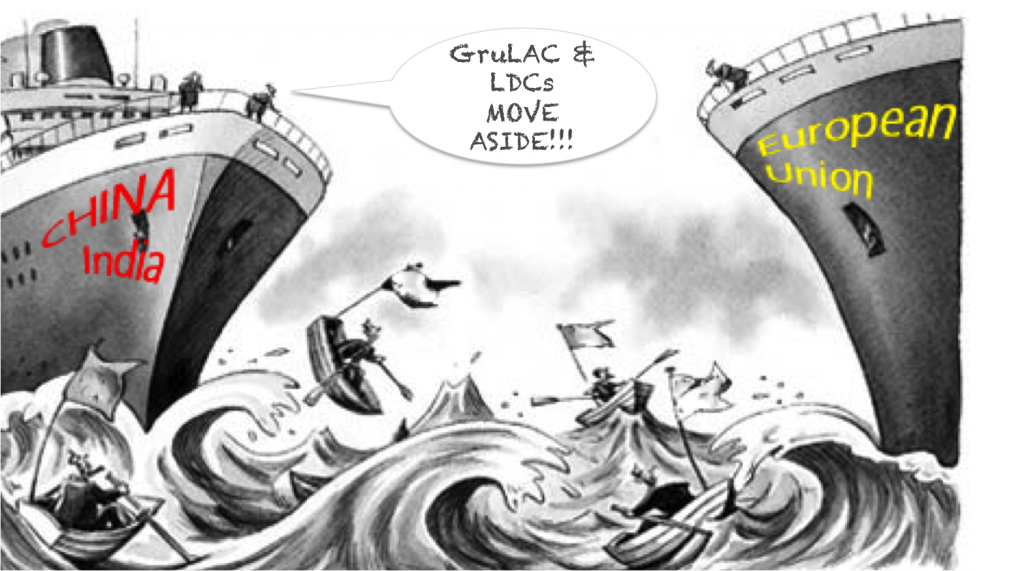By Lara Shirley
The negotiating strategies employed by the G77+China are very interesting. They are a political entity, and thus have to be highly conscious of the image they project not only to their fellow negotiators but to the wider global community of civil society and media.
The G77 negotiators tend to use precise and sophisticated language, often being the only ones to explicitly demonstrate depth of knowledge on various issues. Their negotiators are highly articulate and educated, and make more of an effort to appear so than their US and EU counterparts. They have more of a need to appear intelligent: Their colleagues from the global North have much more economic and political power outside of the negotiating rooms, so less effort is needed within them.
At the same time, the G77 negotiators will also criticize this language and the process as a whole. They openly say that this dancing around language and meaning is silly, that negotiators should say what they really mean. They call upon fellow delegates to give the true reasons why they want to remove certain text, or even to give any reason at all (which countries don’t always do). They seem to expose the farcical nature of the whole negotiating charade.
They will also often remind their audience that they come from the developing world. For example, at the ’92 Earth Summit, in response to the Northern desire to have a short and “inspirational” Earth Charter that every child could hang above their beds, the G77 pointed out that many children did not even have beds. They pose themselves as a direct opposite to the global North that wants to abuse people and the environment – as advocates for justice and equity.
All of these traits are very appealing to onlookers. Appearing intelligent makes the G77 more respectable, more trustable. Denouncing the process strikes a very strong chord with all the frustrated observers watching people in suits bat semicolons between each other. Harking the unjustly exploited, ditto. They seem to be decent folks.
It’s depressing to realise that these tactics, which ring so close to my heart, are in fact nothing more than that: Tactics. They are tactics because these people are negotiators, they are not simply good people fighting an unjust system, they are people who work within the realm of politics, people whose job it is to negotiate. Tactics are used to push points forward, and those points are not always as morally upright as we would like to think they are.
Apart from the somewhat inevitable contradiction of speaking on behalf of a poverty they have probably never lived through, the G77 negotiators also criticize diplomacy and negotiating strategies only to turn around and work in the exact same way. They avoid mentions of human rights, of civil society, and of environmental conservation. They claim to be talking for their people and environment – but negotiators work for the interests of the governments that pay them, and not necessarily for the masses of hungry people or polluted ecosystems.
That doesn’t mean they don’t have valuable contributions to make. They definitely do, and I find myself supporting their contributions far more often than those of the US or the EU – but it is essential to keep in mind that the G77 position doesn’t necessarily want the best for everyone.



